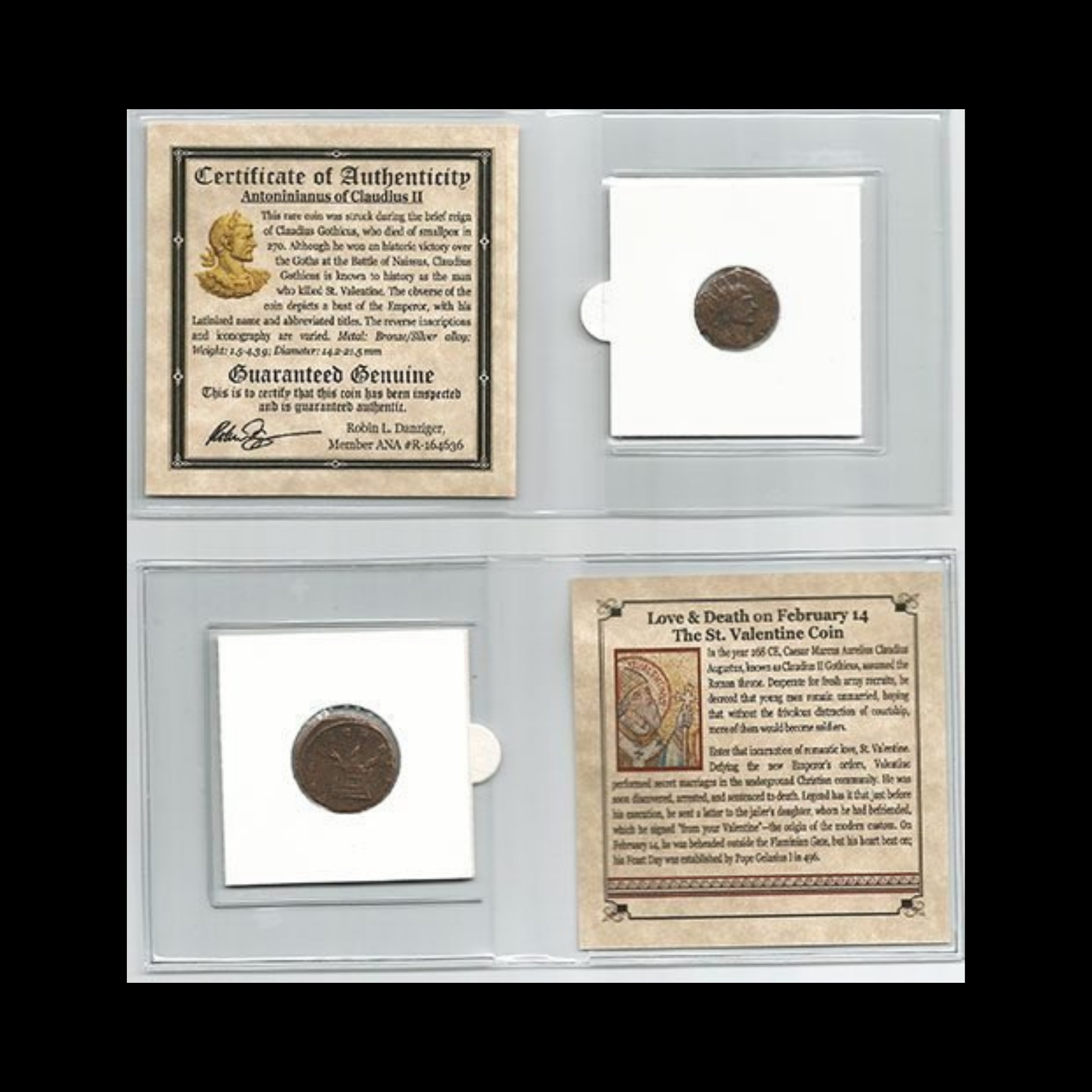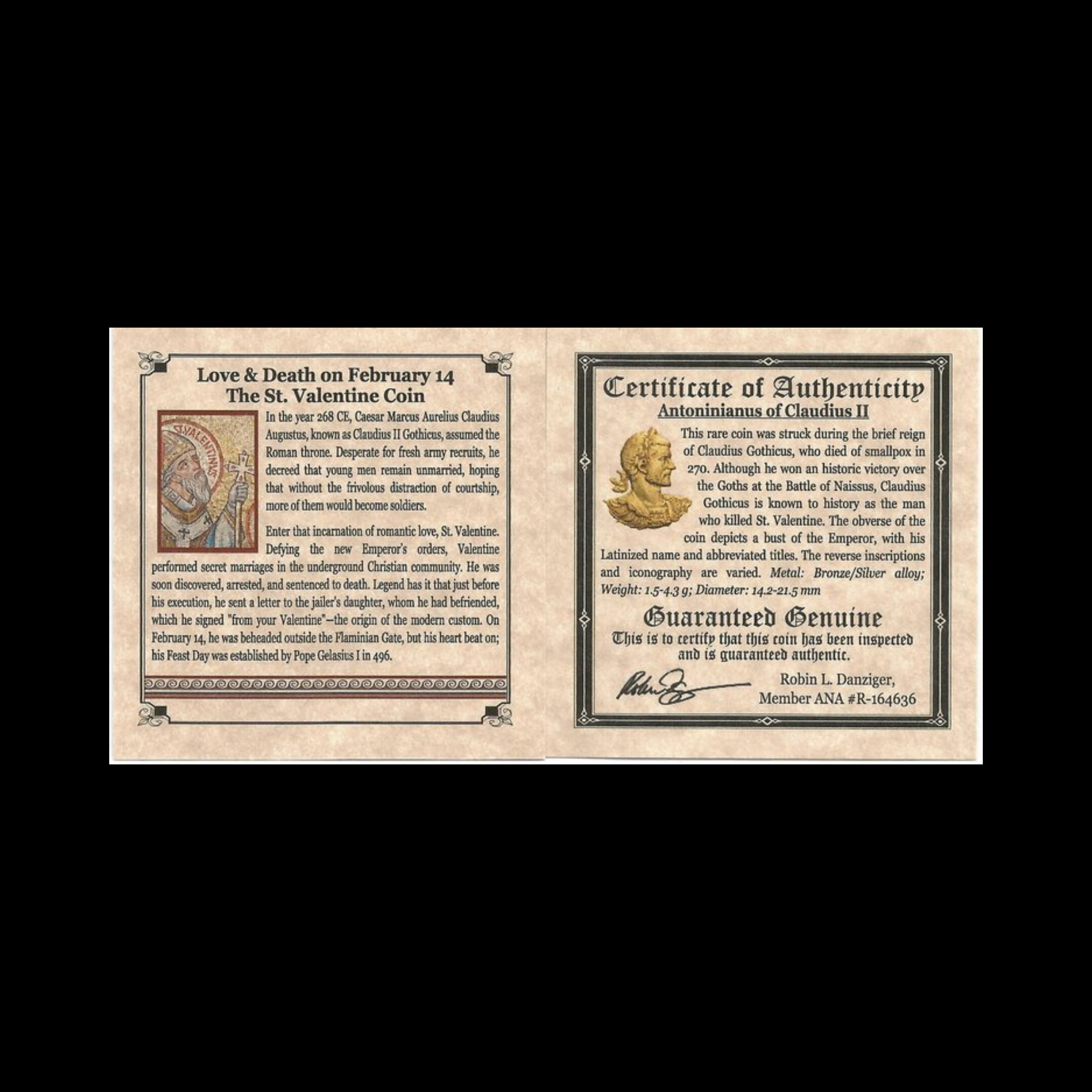 Image 1 of 2
Image 1 of 2

 Image 2 of 2
Image 2 of 2



St. Valentine’s Emperor – Bronze Coin of Claudius II Gothicus (AD 268–270)
Claudius II Gothicus Bronze AE – Emperor of Valentine's Day (NGC Certified) — Gothic Victor + Romance Legend
Authentic NGC-certified bronze coin of Claudius II Gothicus (268–270 AD) — Goth-slayer whose marriage ban legend inspires St. Valentine martyrdom Feb 14, 269 AD.
Crisis Savior Design
• Obverse: Radiate portrait + "GOTHICVS" victory title
• Reverse: Victory / Jupiter / military standards
• Legacy: Begins Rome's recovery from 50-year Crisis
Technical Specifications
• Material: Billon bronze AE (post-debasement)
• Denomination: Antoninianus double-denarius
• Certification: NGC slabbed
• Date: AD 268–270
• Mints: Roman emergency facilities
Valentine's Origin Essential
• 269 AD Battle Naissus crushes Gothic invasion
• Legend: Claudius bans soldier marriages for bravery
• Priest Valentinus defies → martyred February 14
• Seeds world's most romantic holiday tradition
Collector Masterpiece
Gothic savior + Valentine's Day founder. Claudius II links military triumph to eternal love story.
Note: Coins shown are representative examples of grade/type, not actual specimens. For NGC grading standards, see NGC Grading page.
Claudius II Gothicus Bronze AE – Emperor of Valentine's Day (NGC Certified) — Gothic Victor + Romance Legend
Authentic NGC-certified bronze coin of Claudius II Gothicus (268–270 AD) — Goth-slayer whose marriage ban legend inspires St. Valentine martyrdom Feb 14, 269 AD.
Crisis Savior Design
• Obverse: Radiate portrait + "GOTHICVS" victory title
• Reverse: Victory / Jupiter / military standards
• Legacy: Begins Rome's recovery from 50-year Crisis
Technical Specifications
• Material: Billon bronze AE (post-debasement)
• Denomination: Antoninianus double-denarius
• Certification: NGC slabbed
• Date: AD 268–270
• Mints: Roman emergency facilities
Valentine's Origin Essential
• 269 AD Battle Naissus crushes Gothic invasion
• Legend: Claudius bans soldier marriages for bravery
• Priest Valentinus defies → martyred February 14
• Seeds world's most romantic holiday tradition
Collector Masterpiece
Gothic savior + Valentine's Day founder. Claudius II links military triumph to eternal love story.
Note: Coins shown are representative examples of grade/type, not actual specimens. For NGC grading standards, see NGC Grading page.































